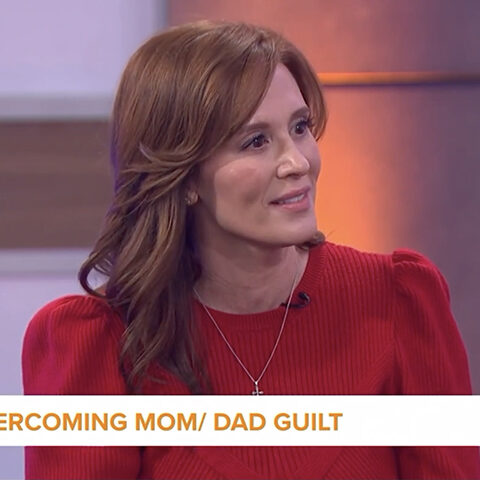
Overcoming Mom/Dad Guilt
Do you ever feel like you’re not meeting the mark as a parent, or perhaps feel guilty about prioritizing your own needs over those of your children? Staff therapist Jacquilne Welchman shares insights on WFAA Channel 8’s Good Morning Texas.
Overcoming Mom/Dad Guilt: Practical Tips for Self-Care and Balance
As parents, many of us know the feeling all too well – that nagging sense that we aren’t doing enough, or worse, that we’re failing. This experience, often referred to as Mom” or Dad Guilt, is incredibly common. Parents around the world wrestle with this emotion on a regular basis. In this post, we’ll explore what parent guilt really is, why it affects so many of us, and how we can overcome it to be the best parents we can be.
What Is Parent Guilt?
Parent guilt refers to the complex set of emotions that arise when we question our effectiveness as caregivers. It often surfaces when we feel like we’re not living up to expectations—either our own or those of others. Whether it’s society’s ideals, the pressure to keep up with other parents, or our internalized standards, we begin to feel guilty when we think we’re falling short.
When Does Parent Guilt Start?
Parent guilt can begin at any time but often surfaces during transitions, such as returning to work after having a baby or juggling multiple responsibilities. One of the most common scenarios involves feeling guilty about spending time away from our children to meet work obligations. We may feel bad for being at work instead of with our kids, and then guilty when we’re with our kids instead of working. This delicate balancing act between professional duties and caregiving can leave parents emotionally drained.
Recognizing Parent Guilt: Key Symptoms
You may be experiencing parent guilt if you find yourself constantly comparing yourself to other parents. This comparison often leads to feelings of inadequacy and self-doubt, manifesting as an urgency to “fix” the problem. Guilt can also show up as anxiety or overwhelm.
For example, many of us see picture-perfect families on social media, and we start to think, Why isn’t my life like that? Why aren’t my children reaching those milestones or having those experiences? This type of thinking can make the guilt feel even heavier.
The Consequences of Parent Guilt
Unchecked guilt can have serious consequences for a parent’s well-being. Over time, feelings of guilt can turn into self-doubt, which can lead to helplessness or hopelessness. The longer these emotions persist, the more they can impact both our mental and physical health.
Guilt vs. Depression: What’s the Difference?
It’s important to distinguish between normal parent guilt and something more serious, like depression. To do this, consider the intensity and duration of your feelings. Are your emotions manageable with self-care, or are they interfering with your day-to-day functioning? If the latter is true, it may be worth reaching out to a professional for support.
How Can We Prevent and Overcome Parent Guilt?
While it may seem like guilt is an inevitable part of parenting, there are ways to manage and even overcome it. The first step is to check in with yourself and understand where the guilt is coming from. Is it pressure from external sources, or are you setting unrealistic expectations for yourself?
Building self-care into your routine is essential. Many parents feel like they don’t have time for self-care, but this is where the oxygen mask analogy comes into play. Just like in an airplane emergency, you must put on your own oxygen mask before assisting others. In parenting, this means taking care of yourself first so you have the energy and capacity to care for your children. Self-care can look different for every parent, whether it’s a few minutes of quiet time, a walk, or a hobby that helps you recharge.
It’s also important to curate your social media experience. If you’re following accounts that only show the highlights of parenting without the reality, it might be time to unfollow them. Seeing only the “perfect” moments can create unrealistic expectations and deepen feelings of inadequacy.
Final Thoughts on Self-Care and Balance
Self-care isn’t selfish; it’s necessary for both you and your family. By taking care of yourself and finding a balance between your needs and your responsibilities, you can reduce guilt and be more present and effective as a parent. It’s important to challenge the assumption that you don’t have time for self-care. Even small moments of mindfulness or relaxation can make a big difference in how you feel.
Parenting is full of challenges, but it doesn’t have to be filled with guilt. By recognizing the signs, understanding the source, and committing to self-care, you can overcome those feelings and thrive in your role as a caregiver.
